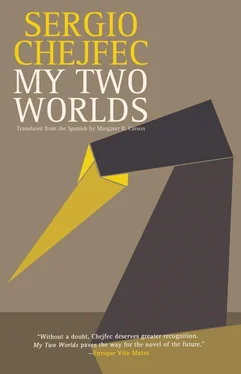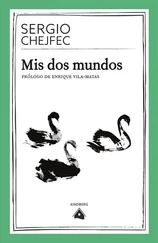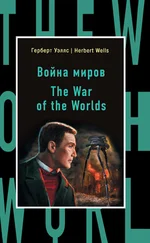The waiter had gone completely into hiding behind the window, and I began thinking of the strange coincidence of both my friends’ beginning their birthday books with a reference to the moon. One presents his theory on the visibility of the moon, the other starts his story by practically commending himself to the lunar cycle, since he’s setting out on a twenty-eight-day journey. I’ve known both men for years, and that’s why I can say, based on experience, that we are, I with each of them, obedient to differing regimes of friendship. In the end, you could say the same of any relationship or person, and even more when you’ve reached a certain age, there are as many types of friendship as friends, though in my case it’s worth clarifying, because there are some friends I’ve stopped seeing from one day to the next, with neither preambles or explanations. To describe what happened in detail would take me another book, probably of a more confessional tone, because I’d have to expand on my responsibility in the matter, or my share of responsibility, and I’d also have to explain the singular perception of time that, owing to those decisions, has been with me ever since. Is this related to my eternal sense of not getting any older, of feeling that the progress of time responds more to the peculiar elasticity of life’s episodes than to an accumulation of events and years? I don’t know. I could say I coexist with several hypotheses and that not one of them manages entirely to persuade me, when here comes a new criterion or substitute argument, the new idea that takes charge. The more I think, the less convinced I am; but it’s not just a question of thinking: I’m actually proceeding in the realm of pre-cerebral intuitions. When I’m on the verge of sighting a definite theory, or a clear one at least, all at once the idea retreats, as if it were afraid of taking on an unexpected responsibility. And so the moon is an astronomical enigma for one, and a narrative clock for the other. I’m not about to discuss their points of view or their choices; I couldn’t begin to do so even if I meant to. If I had to summarize, arbitrarily and in a few words, the sense I gather from both books, I would say that these two writers, on the eve of their fiftieth birthday, were attempting to show the system of beliefs that sustains them.
When I raised my eyes from my observation point on the terrace of the Café do Lago, I could make out some palm trees scattered as if at random throughout the park. Of course, only a few were actually visible, in fact no more than two or three, which stood like solitary columns above the rest of the trees and all the other plant life. During my walk I’d found it amusing to observe, time and again, the isolated plume of some one of them, as if it were definitively safe from any upheaval that might take place on the surface. I kept imagining that if the palm trees could think, and if they had time to harbor human feelings, disdain for the ground — for them no doubt a kind of despised and incomprehensible netherworld — would occupy a good part of their meditations. At the least sign of upheaval or turmoil, or indeed at any hint of activity on the lower level, that disdain would return each time, like a leitmotif, a recurrence that, far from making these trees suspicious of their own judgment and preconceptions, would confirm the appropriateness of their forebodings as well as the permanent chaos, as they saw it, from which they considered themselves safe. That reiterated thought, on the one hand, kept them safe, according to their logic, and was, at the same time, a concrete expression of their detachment from the ground.
I became completely self-absorbed during my walk and I told myself I’d never seen flora more autistic than these extremely tall palm trees, a probable consequence of their radical excess. Their autism appeared to be a sign of or condition for happiness, and as I walked about here and there and interrupted my thoughts to look up and see them standing erect like that in the most unexpected places, I felt a powerful sensation of envy, which led me to register with them a mental protest at the injustice of the situation: they were happy, indifferent to all that was earthly; and I was tormented by my doubts and worries, or quite simply condemned to scarcely take my eyes off the ground.
Very seldom had plants, generally speaking, induced feelings of empathy in me beyond the friendship you might feel as you pour water into your favorite flowerpot, for instance, or when you believe a modest spritz or some care will help the sick geranium. I also remembered the science experiments in school, especially the white beans or similar legumes set out to germinate, for which I used a glass jar and blotting paper soaked in water. And I told myself, on reliving it all, that my first and practically only experience of compenetration with the plant world dated back to that time; I don’t know what to call it, a state of intense identification, perhaps even mystical, though always wrapped in domestic ceremonies, like watering or the eventual pruning, and tangible effects, like the changing of leaves, growth or attenuation. Every result of that past activity had obviously disappeared, for who knows where the old sprout can possibly be today, or the leaves fallen years ago. My habitual indifference to plants thus gave my unforeseen solidarity with the palm trees an added coloration, much more specific because of its contrast to my former disregard, even if from all standpoints unverifiable since I clearly couldn’t take credit for the existence of those tall, healthy palm trees, of a perfect verticality and an enviable self-sufficiency, that was obvious.
In one open space in the park, astonishingly devoid of meaning because it was devoted to nothing in particular, I’d been able to come up to an exceedingly tall palm tree, maybe the oldest or the healthiest, at the base of which you got dizzy if you looked up. The ground in that spot was completely flat, and the tree thus formed a perfect perpendicular if you disregarded the logical thickening of the trunk before its base and above the ground. Consequently, the right angle could be verified from a distance, and up close would be refuted. I looked at the smooth trunk, to all appearances endless, so that it was hard to determine at which point it resolved into the fronds of the crown, which were long and curved downward under their own weight; I saw the trunk rising to that incredible point, at a distance that was possibly infinite, and told myself that perhaps the fronds were an expression of fear, or in any event, an improvised solution, because the tree itself considered it impossible to go on rising. Impossible, and perhaps useless too. At that moment, as I looked upward, overcome by vertigo, an idea occurred to me that even I found crazy: I longed to imagine the point from which a camera could take a picture of me at the foot of that tree, including the full height of the trunk beside me. I told myself it was probably impractical, since the camera would have to penetrate the deep underwood of the park and obstacles would intervene. If that image were possible, I’d look like a diminutive being, at the mercy of the whims of an outsized giant. What type of document would that photo be, I wondered. A moment from the naturalistic expedition, where the contrast with the majestic is a frequent and even obligatory step. I realized, then, that taking that photo was impossible, and still more, was inconceivable as fantasy, because the image created in my head proved more appropriate to tropical savannas, where the void finds its corroborating argument in those isolated, prominent trees. And in all likelihood that palm tree was nothing but that argument, the clearing’s justification, that is, an allusion to much of the territory.
I remembered all this sitting at my table on the terrace, as the reflection on the lake gradually darkened. I’ve been a casual viewer of Kentridge’s animated films. When I tried to get hold of one to watch at my leisure, it proved impossible. One time I managed to find a CD-ROM, but it was very costly and seems a joke, because it’s got barely forty to fifty seconds of just a few of his works. Since it was old, I needed programs that no longer exist in order to run it. When I inserted it my computer began making a brand-new noise, like a vacuum cleaner’s, that could be heard all over the house. Only after a great deal of effort and patience was I finally able to watch the disc, with the results just mentioned. In any case, though I consider myself a casual viewer of his work, and thus a mere admirer, I suspect that the recourse of the visible gaze was the initial find that allowed him to develop a good part of the rest.
Читать дальше












